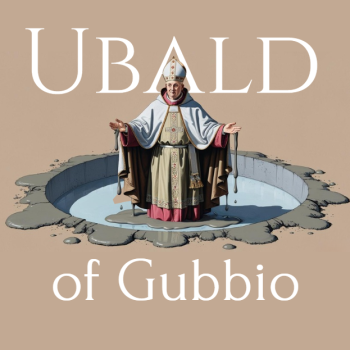All is well, of course. Belief is restored, Kris Kringle wins his court case, and maybe, just maybe, he was the real Santa after all. To believe in Santa is to believe in the Christmas spirit—giving, celebration, and love—but it is also to have a willingness to accept things you can't see, things that don't make logical sense in the everyday, things that call us to more and better. And that's a faith story that should be familiar to us by now.
Other movies rotate around this question of belief in Santa as well. The Polar Express centers around a young boy's loss of belief and his trip to the North Pole on a magical train (which to me would be pretty good proof right there) with a ticket stamped "Believe." The Santa Clause (which has spawned increasingly irrelevant sequels) stars Tim Allen as Scott Calvin, a busy businessman who --even when he's taken to the North Pole and fitted into Santa's life, has a hard time believing in the concept of Santa; as he flies off in Santa's sleigh, Scott calls out, "Merry Christmas to all, and to all a good night! When I get home, I'm getting a CAT scan!"
Even though he sees, he does not believe, which is not unprecedented. So when Scott arrives at the North Pole, he lets it all hang out. He asks head elf Bernard, "What if I don't buy any of this Santa Claus thing? What if I choose not to believe it?"
Bernard must have heard this question before: "Then there'll be millions of disappointed children around the world. Y'see, children hold the spirit of Christmas within their hearts. You don't wanna be responsible for killing the spirit of Christmas now would you . . . Santa?"
Well, when you put it that way.
Scott's son Charlie (Eric Lloyd), believes that Scott is, and can be, Santa. His belief—against the odds, despite the distance between his father's cynical personality and that of jolly old Saint Nick's—makes all the difference. "You helped make me Santa," Scott ultimately says to his son, and certainly Scott's ability to tap into his son's need for childlike belief—and his love for his son—allows Santa to keep on flying.
So belief is important, what do you do with belief? Well, in many of these films, belief leads to action, and action leads to community. At the end of Miracle on 34th Street, a new family unit has been formed. In The Santa Clause, Scott Calvin's relationship with his son has been repaired. In Elf, belief in the Christmas spirit likewise repairs a fractured family, and it also brings together a community united in the Christmas spirit.
Elf, that wildly popular reinvention of Miracle on 34th Street, should not be anybody's theological primer, but it does contain some useful elements for people of faith to reflect upon. There's the Elf Code, which you may want to paste inside your Bible or prayer book:
- Treat Every Day Like Christmas.
- There's Room For Everyone on the Nice List.
- The Best Way to Spread Christmas Cheer is Singing Loud for All to Hear.
There's the movie's main story, about Buddy (Will Farrell), a human raised by elves who comes to New York to meet his birth father Walter (James Caan), the usual self-centered I-don't-believe-in-Christmas creep. (Scrooge, in short.) Buddy gets a job as an elf in Gimbel's department store, and like Macy's Santa Kris Kringle in Miracle on 34th Street, he gets in trouble for maintaining that he is the real thing. But he does his best to sow happiness and good cheer wherever he goes, and at the end of the film, a crowd of cynical New Yorkers begins to carry out Elf Code item three: The Best Way to Spread Christmas Cheer is Singing Loud for All to Hear. At last, even cranky old Walter sings out loud, and as a result of all this Christmas spirit, Santa's sleigh is able to take flight, and something magical happens to those people. For a moment, at least, that diverse group of people believes in something larger than themselves.
For a moment, that diverse group of people becomes a community.
The image of these diverse people becoming—if only for a moment—one, is for me an image of the sort of community formed in the sacramental life of the Church. As the liturgy says, "We being many are one body, for we all share the one bread." Setting aside our differences, setting aside our fears and concerns, we come together to become a community. Then we go back out into the world as changed people, hoping to change the world.
That is the message we can glean from many popular Christmas films. And that, ladies and gentlemen, is also the Church.





